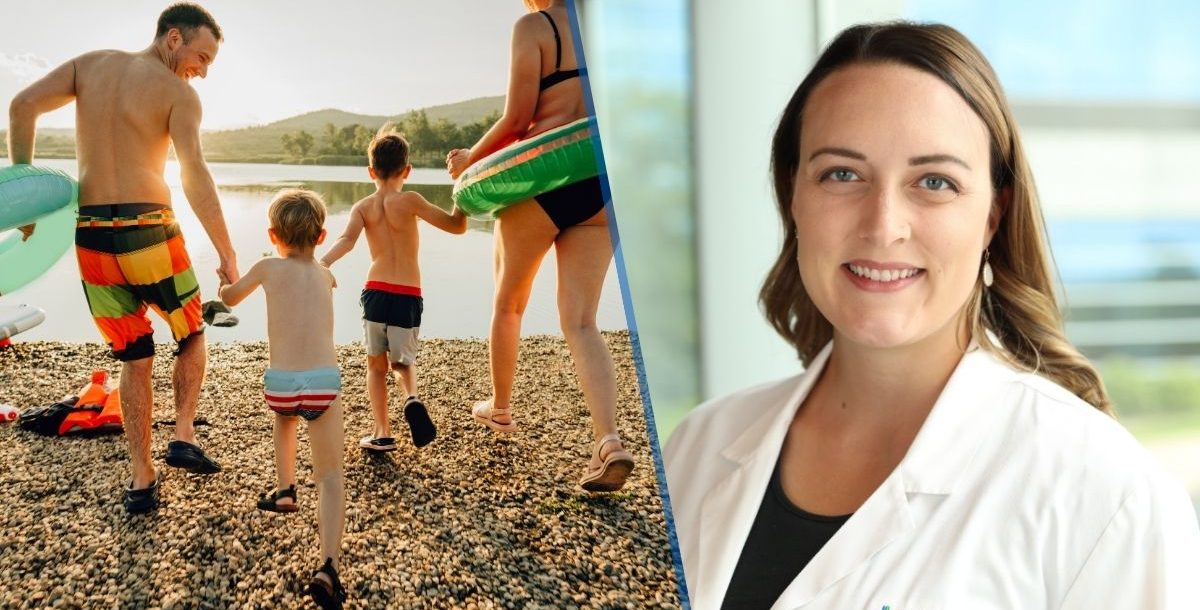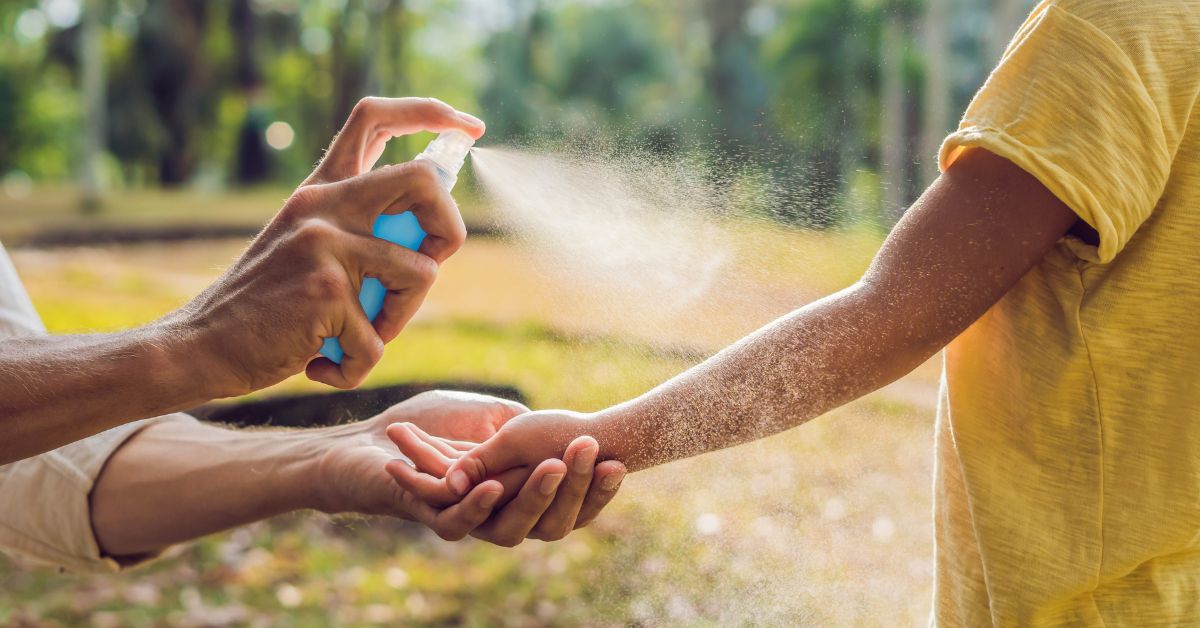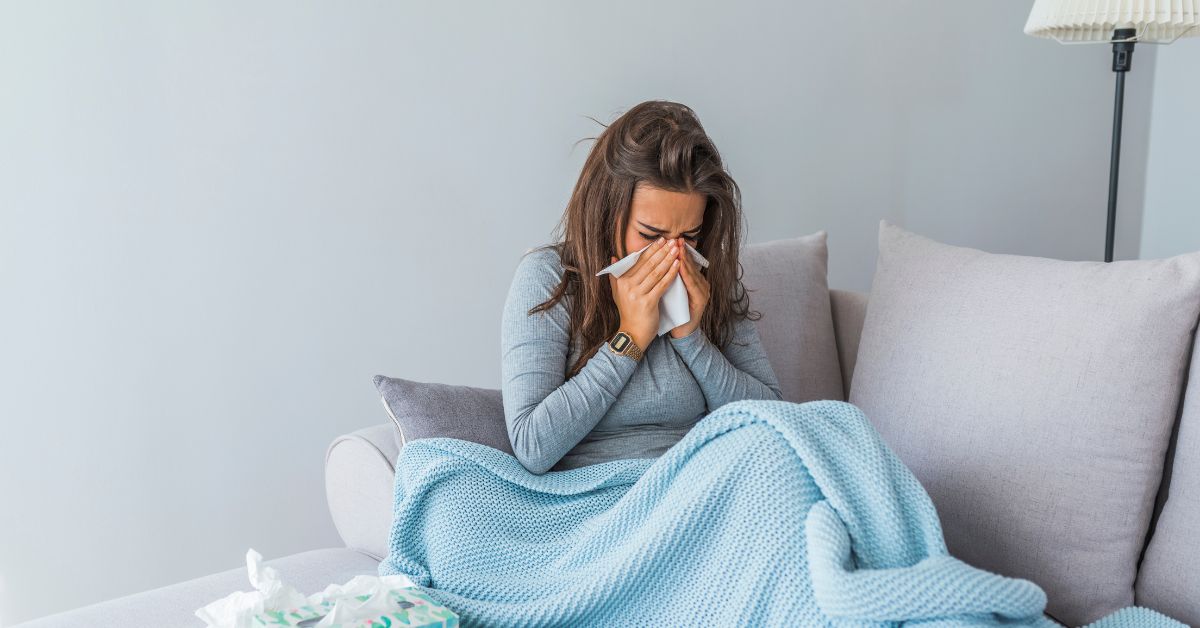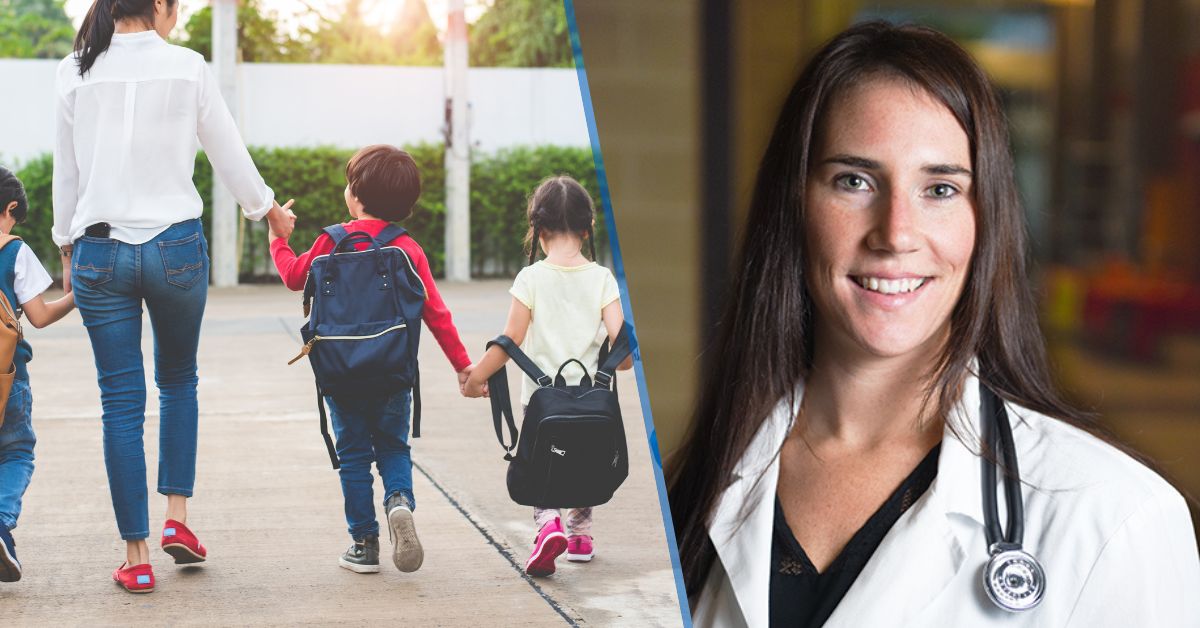As summer season gets into full swing, we asked Katheryne Ruck, DO, a family medicine physician at Mercy Health – Mason Primary Care a few questions. She shared a few tips for families to keep in mind.
Q: People want their kids to have a fun but also safe summer. What are some of the top summer safety precautions parents can take?
A: “Summer is a great time to be outside, be active and enjoy time as a family! After a gray and cold winter, we are all eager to be out in the sunshine and cool off in the pool.
Unfortunately, the same warm sunrays that feel so good after the winter can cause damage over time. Wearing sunscreen will help prevent sunburn and decrease the risk of skin cancer. Infants younger than 6 months should wear UV protective clothing, such as sun hats and UV shirts. Once infants are over the age of 6 months, sunscreen with SPF greater than 50 is advised. If you are like my kids and have a hard time getting sunscreen on your kiddos, try a makeup brush to brush on the sunscreen or a stick sunscreen that they can help apply.
Water safety is the second priority. Drowning is a leading cause of death in children. Make sure that you or someone you trust is watching your kids at all times near water. If children cannot swim, make sure you have approved flotation devices or life jackets.
Finally, when riding a bike or scooter, make sure to wear a helmet! This goes for all ages!”
Q: Giving kids the ability to advocate for themselves is important for their growth. How can parents communicate to their kids the importance of safety and be confident they will listen?
A: “This comes down to making sure that kids know your family’s rules and boundaries. Safety should be non-negotiable. Being a calm, confident leader in your home means upholding safe boundaries. Empathizing with your child and validating their feelings will help them feel heard and understood while also holding firm to your expectations.
Depending on their ages, I would recommend the following statements.
For ages 4 and under, ‘you really want to ride your bike without your helmet. We need to wear helmets to keep our brains safe. You can ride your bike with a helmet, or you can go play chalk.’
If they refuse to put it on, you calmly take them off their bike, putting it out of reach if need be.
And for ages 5 and older, ‘your friends aren’t wearing helmets while they ride their bikes. You don’t want to wear your helmet either. My job is to help keep you safe. You can wear your helmet and ride your bike, or you can play something else. I will not let you ride your bike without your helmet.’
Expect lots of sighs and grunts in response. If kids are not wearing helmets while visiting friends, let them know that they will not be able to take their bikes again in the future and/or not able to visit that friend unless you know they will be safe wearing the helmet.”
Q: When a parent is not home, and a babysitter is in charge, how can this parent relax and know their kids are safe and in good hands?
A: “This is hard! Knowing that you left your kids with someone you trust is key. Communicating your expectations with the caregiver and ensuring you see eye to eye can help us feel better about leaving our kids. Asking them to send periodic text updates or pictures can help, too.”
Q: Summertime is a fun time, so not being a “helicopter parent” and trying to ease up is a constant struggle for some. What advice can you give parents to help them find that balance between letting go of things and being safe?
A: “Our kids explore and learn to trust their bodies by doing! Letting them know that you are nearby if they need help will encourage them to try new things. Giving them a mantra to repeat to themselves can help, such as, ‘I can do hard things. Mom and Dad are here if I need help.’”
Q: Why is it important for our kids to know that they are trusted by us?
A: “The way we talk to our kids becomes their internal voice. We want them to learn how to fall down and fail while they live with us! We want our kids to feel safe making ‘safe’ mistakes and knowing they can turn to us, their parents, for help! We should encourage them to ‘listen to their bodies, do what feels good to them’ and not force them to do anything they are not comfortable with.
For example, you have a 2-year-old who is hesitant to go play at the park when you first arrive; let them know that they can sit with you and you know they will go play when they are ready. When you want to keep saying ‘be careful,’ ask yourself if what they are doing is safe; if so and you’re worried they might fall, remind yourself, ‘my kid trusts their body, they will ask for help if they need it, I trust them.’ Saying it aloud will help your child know they can count on you, too!
Overall, we want kids to be able to practice saying ‘no’ now and trusting their inner self as young children so that when they are older and a teenager or young adult, they feel comfortable saying no to peer pressure!
Learn about the primary care services we provide at Mercy Health.






